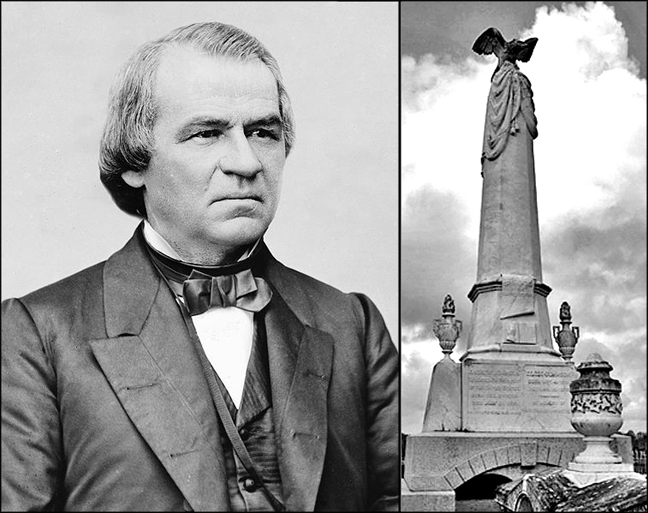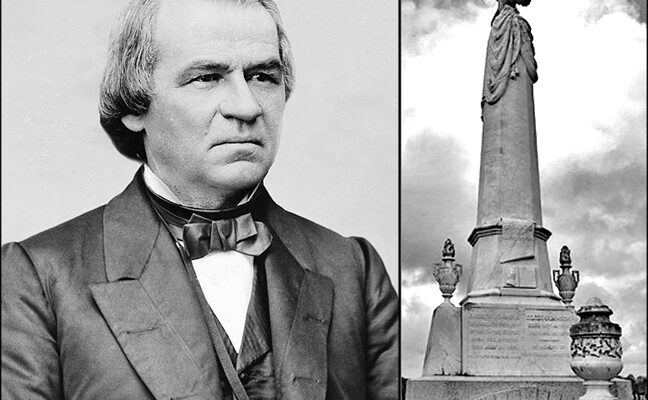May 31, 1909 was a momentous day in Greeneville, Tennessee – the former 17th president of the United States, Andrew Johnson, was eulogized. He lay at rest among the sprawling greenery in the National Cemetery, which for the previous 34 years had served as the resting place for the remains of the former president.
purchased by the government and made into a national cemetery. It was a beautiful where, for several years in his early life, Mr. Johnson had worked as a tailor. The property was meticulously provided for and commanded a fine view of the mountain range which separated Mr. Johnson’s adopted state of Tennessee with North Carolina, where he was born.
Thousands of the descendants of his neighbors and friends in East Tennessee took advantage on that special occurrence. They were there to honor the memory of the former distinguished citizen by organizing the Andrew Johnson Memorial Association.

People came from all portions of the expansive and picturesque East Tennessee countryside. While most were of the present day generation, some were old-timers who spoke about him with much fondness and boasted of having known the “Courageous Commoner,” as he was known in his day.
The keynote speaker of the occasion, Martin W. Littleton, a U.S. Representative from New York, offered a glowing eulogy of the former president who, during his term of office, was tried on impeachment charges but came up one vote short of conviction. Littleton, a native of East Tennessee, assessed, at great length, the life of the distinguished man in whose honor the people had assembled and further predicted that the day would come when the entire country would pay homage to the memory of Johnson.
Outside visitors as well as local residents found exceptional pleasure in pointing out the still preserved sign of “Andrew Johnson, Tailor,” which continued to adorn one of the most unassuming buildings. The people also took much pride in the fact that, notwithstanding the almost successful effort to forcibly eject Mr. Johnson from the White House, the private cemetery in which he was buried became the first of such cemeteries to be given national status by Congress.
Among those present and participating in the proceedings was the popular Honorable Walter P. Brownlow, member of Congress from that district, who was a near relative of the late Parson Brownlow. Although Walter Brownlow, who was largely responsible for the creation of the National Cemetery, occupied no assigned part on the program that day, he was by common consent awarded a position of prominence.
In addition to Mr. Littleton’s speech, the program consisted of the singing of “America” and the “Star Spangled Banner” by a choir of 200 voices, an invocation by Rev. John S. Eakin and the introduction of Mr. Littleton by Honorary James C Park, closing with the official formation of the Memorial Association.
There was a notable group of musicians in attendance, several of whom were old-time fiddlers, who had furnished music at the political gatherings during the notable Johnson-Gentry gubernatorial campaign prior to the Civil War. Many of them were in a reminiscent mood and between tunes manifested great willingness to entertain visitors with stories of the dim and distant past.
Before the President's death, he made his wishes known: “When I die. wrap my body in the flag of my country, pillow my head on its Constitution and carry it to one of those beautiful hills in Greene County and there let me sleep until resurrection morning.” His wish was carried out to the letter. A silk flag, a gift from a lifelong friend, was used as a shroud, while the head rested on a worn copy of the Constitution, which he read and studied often.

Comments are closed.